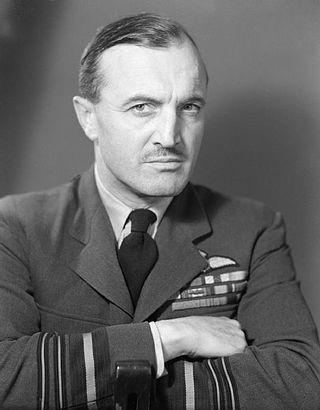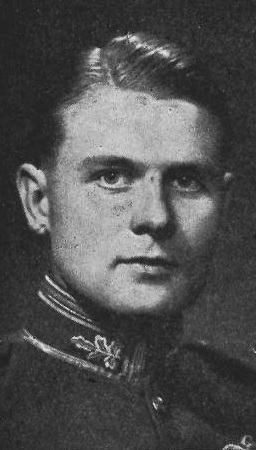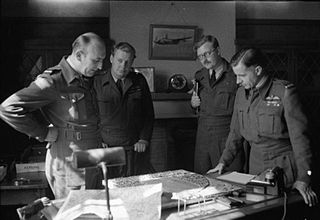Related Research Articles

Field Marshal Sir John Lyon Chapple, was a British Army officer who served as Chief of the General Staff (CGS), the professional head of the British Army, from 1988 to 1992. Early in his military career he saw action during the Malayan Emergency and again during the Indonesia–Malaysia confrontation and later in his career he provided advice to the British government during the Gulf War.

Marshal of the Royal Air Force Sir Peter Robin Harding, was a Royal Air Force officer who served as a bomber pilot in the 1950s, a helicopter squadron commander in the 1960s and a station commander in the 1970s. He became Chief of the Air Staff in 1988 and served in that role during the Gulf War in 1991. He became Chief of the Defence Staff in December 1992 but resigned after his affair with Lady (Bienvenida) Buck, the wife of Conservative MP Antony Buck, became public.

Air Chief Marshal Sir Richard Edward Johns, is a retired senior Royal Air Force commander. He was a fighter pilot in the 1960s, commanding officer of a squadron during the 1970s and a station commander in the 1980s. Johns served as one of three British directors of operations on the senior planning staff for Operation Granby in 1991 and then acted as a supporting commander for joint operations in the Balkans in 1994. As Chief of the Air Staff he advised the British Government on the air force aspects of the Strategic Defence Review and on NATO's air campaign in Kosovo.

Marshal of the Royal Air Force Sir Michael James Beetham, was a Second World War bomber pilot and a high-ranking commander in the Royal Air Force from the 1960s to the 1980s. As Chief of the Air Staff during the Falklands War he was involved in the decision to send the Task Force to the South Atlantic. At the time of his death Beetham was one of only six people holding his service's most senior rank and, excluding Prince Philip's honorary rank, and had the longest time in rank, making him the senior Marshal of the Royal Air Force.
Air Chief Marshal Sir Michael James Graydon, is a retired Royal Air Force (RAF) officer. He was a fast jet pilot in the 1960s, a squadron commander in the 1970s and a station commander in the 1980s before serving as Air Officer Commanding-in-Chief RAF Strike Command during the Gulf War. He was Chief of the Air Staff from 1992 to 1997 in which role he advised the British Government on the implementation of No Fly Zones in Iraq and Bosnia and implemented the Front Line First initiative.

Air chief marshal Sir John Anthony Cheshire,, born 4 September 1942, is a retired senior Royal Air Force (RAF) commander.

Air Chief Marshal Sir Glenn Lester Torpy, is a retired senior Royal Air Force (RAF) commander. He was a fast jet pilot in the late 1970s and 1980s, saw active service during the Gulf War and then went on to higher command. He was the air component commander on Operation Telic and served as Chief of the Air Staff, the professional head of the RAF, from 2006 to 2009. In that role Torpy hosted the RAF's biggest air display in two decades, and argued for consolidation of all British air power in the hands of the RAF.
Air Chief Marshal Sir Peter Ted Squire, was a senior Royal Air Force officer. He was a fast jet pilot in the 1970s, a squadron commander during the Falklands War, and a senior air commander in the 1990s. Squire served as Chief of the Air Staff from 2000 to 2003. In retirement he was the chairman of the board of trustees of the Imperial War Museum and vice-chairman of the board of the Commonwealth War Graves Commission.

Marshal of the Royal Air Force Sir John Cotesworth Slessor, was a senior commander in the Royal Air Force (RAF), serving as Chief of the Air Staff from 1950 to 1952. As a pilot in the Royal Flying Corps during the First World War, he saw action with No. 17 Squadron in the Middle East, earning the Military Cross, and with No. 5 Squadron on the Western Front, where he was awarded the Belgian Croix de Guerre. Between the wars he commanded No. 4 Squadron in England, and No. 3 (Indian) Wing, earning the Distinguished Service Order for operations with the latter in Waziristan. In 1936, he published Air Power and Armies, which examined the use of air power against targets on and behind the battlefield.

Marshal of the Royal Air Force Sir Thomas Geoffrey Pike, was a senior officer in the Royal Air Force. He served in the Second World War as a night fighter squadron commander and then as a station commander. He was Chief of the Air Staff in the early 1960s and, in that role, deployed British air power as part of the British response to the Brunei Revolt. Also, in the face of escalating costs, he implemented the cancellation of the British Blue Streak ballistic missile system but then found the RAF was without any such capability when the Americans cancelled their own Skybolt ballistic missile system. He went on to be Deputy Supreme Commander Supreme Headquarters Allied Powers Europe in the mid-1960s.

Marshal of the Royal Air Force Samuel Charles Elworthy, Baron Elworthy, was a senior officer in the Royal Air Force. He served as commander of a squadron of Blenheim bombers and then as a station commander during the Second World War. He became Chief of the Air Staff in the mid-1960s and implemented the cancellation of the TSR-2 strike aircraft and the HS681 military transport aircraft programmes. He also became Chief of the Defence Staff in which role he oversaw the evacuation from Aden in November 1967 and had to respond to the growing crisis in Northern Ireland in the late 1960s.

Marshal of the Royal Air Force Sir John Grandy, was a senior officer in the Royal Air Force. He was the only officer who fought and commanded a squadron during the Battle of Britain to reach the post of Chief of the Air Staff. In the latter role he implemented the final stages of the RAF's withdrawal from the Persian Gulf and the Far East, oversaw the ordering and subsequent cancellation of the F-111 strike aircraft and handed over Britain's nuclear deterrent role to the Royal Navy.

Marshal of the Royal Air Force Sir Denis Frank Spotswood, was a senior commander in the Royal Air Force. He fought in the Second World War as a flying boat pilot and then as a coastal reconnaissance squadron commander during Operation Torch, the invasion of North Africa. He served as a station commander in the late 1940s and early 1950s before becoming a senior air commander in the late 1950s. As the Chief of the Air Staff in the early 1970s he had a major role in implementing the defence savings demanded by the Heath Government in the face of economic difficulties at the time.
Air Chief Marshal Sir Patrick Bardon Hine, is a former senior Royal Air Force commander. Most notably, he was joint commander of all British forces during the Gulf War.

Air Chief Marshal Sir George Holroyd Mills, was a senior Royal Air Force commander. After his retirement from the RAF, Mills served as Black Rod in the Houses of Parliament until 1970. He was also a trustee of the Imperial War Museum.

Air Chief Marshal Sir Basil Edward Embry, was a senior Royal Air Force commander. He was Commander-in-Chief of Fighter Command from 1949 to 1953.

Air Chief Marshal Sir Lewis Macdonald Hodges, was a pilot for Special Operations Executive (SOE) in the Second World War, and later achieved high command in the Royal Air Force and NATO.

Air Chief Marshal Sir Stephen Gary George Dalton, is a retired senior officer of the Royal Air Force and former Lieutenant-Governor of Jersey.

Air Chief Marshal Sir Andrew Douglas Pulford, is a retired senior Royal Air Force (RAF) commander. A helicopter pilot with operational service in Northern Ireland, the Falklands War and Iraq War, Pulford commanded RAF Odiham and No. 2 Group, and served as Assistant Chief of Defence Staff Operations, before taking up the post of Deputy Commander-in-Chief Personnel at Air Command and Air Member for Personnel in 2010. He became Chief of the Air Staff on 31 July 2013, retiring from the Royal Air Force on 12 July 2016.

Air Chief Marshal Sir Peter de Lacy Le Cheminant, was a senior commander of the Royal Air Force (RAF), who served as Vice-Chief of the Defence Staff from 1974 to 1976 and Deputy Commander-in-Chief of Allied Forces Central Europe from 1976 until his retirement in 1979.
References
- ↑ "Index Ta-Ti".
- ↑ "No. 37758". The London Gazette (Supplement). 11 October 1946. p. 5086.
- ↑ "No. 38035". The London Gazette (Supplement). 1 August 1947. p. 3670.
- ↑ "No. 40998". The London Gazette (Supplement). 8 February 1957. p. 971.
- ↑ "No. 46526". The London Gazette (Supplement). 25 March 1975. p. 3973.
- ↑ Air of Authority – A History of RAF Organisation – Air Council Appointments Archived 10 October 2007 at the Wayback Machine
- ↑ "No. 48547". The London Gazette (Supplement). 9 March 1981. p. 3444.
- ↑ "No. 49939". The London Gazette (Supplement). 26 November 1984. p. 16026.
- ↑ Michael Brufal. "Governors of Gibraltar (1945 onwards)". rockjottings.com. Archived from the original on 28 September 2007. Retrieved 9 May 2007.
- ↑ Rule, Sheila (20 September 1990). "I.R.A. Raid Wounds an Ex-British Aide". The New York Times . New York City. Retrieved 7 December 2012.
- ↑ "IRA gun attack on ex Governor". westmidlands.com. Retrieved 9 May 2007.
- ↑ "Remarks condemning IRA attack on Sir Peter Terry ("deeply grieved")". MargaretThatcher.org. Retrieved 10 May 2007.
- ↑ Who's Who 1985,page 1900
- 1 2 Air Chief Marshal Sir Peter Terry - obituary
- ↑ "Queen attends Order of the Bath". bbc.co.uk . 17 May 2006. Retrieved 26 December 2017.
- 1 2 Obituary – Air Chief Marshal Sir Peter Terry

